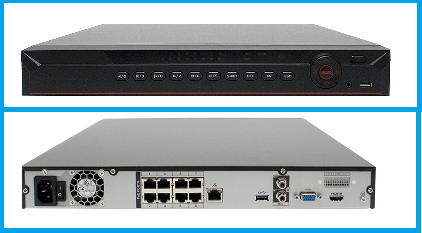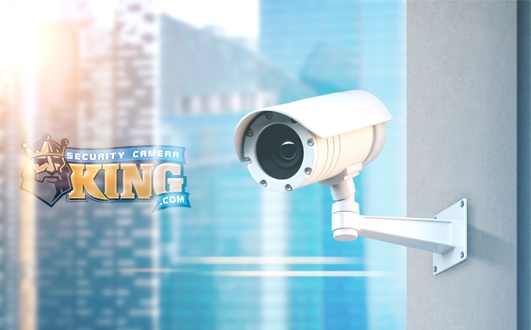IP CCTV Technologies
Many people ask us at Security Camera King if IP CCTV Technologies is truly the wave of the future. Many also wonder what the learning curve is. Well, we are here to tell you that IP CCTV Technologies really are the next step in the evolution of CCTV, and they’re here to stay. There might be a learning curve for those not initiated into PC Networking, but much of the time the technology is actually very approachable.
So in order to truly explain why IP CCTV Technologies are so different, we first have to talk a bit about their predecessors- DVRs and COAX cameras.
DVRs have been regularly available for commercial and residential use since about 1999, which makes them much older than NVRs. DVR stands for Digital Video Recorder. While you might have seen some DVR once used for capturing missed TV episodes, the DVRs we are referring to are for use In the CCTV industry. They act as recording stations for CCTV cameras. The types of security cameras that connect to DVRs are not IP, they don’t have ethernet cable connections to a PC network, nor use IP addresses. These cameras use a Coaxial -or COAX- cable that is connected to the ports on the back of the DVR. This is able to then transmit video data to the Recorder. DVRs do all the video processing work for their cameras within the DVR itself. Additionally, cameras for DVR require at minimum 2 cables for operation, 1 for sending video to the DVR which is a COAX cable, and another for getting power to the camera usually from a the distribution box. This can make cabling in tight situations more difficult.
Below youu’ll find a picture of an NVR, which are quite different than their DVR counterparts. On the surface, it might not seem so, but the reality is while NVRs and DVrs both ‘record cctv cameras’ they both do it in very

IP CCTV Technologies
NVR’s work exclusively with IP Cameras, they cannot work with the COAX cameras from a DVR-based installation. However, despite this seeming drawback consider that IP cameras and NVRs have many benefits. For one, IP cameras use something called POE, or Power Over Ethernet. That means that the very same cable which supplies data to the NVCR directly, or to the network the NVR is on, also supplies power to the camera. Remember how COAX cameras needed more than one cable to operate? Well cut that cabling time and cost in half with IP.
Additionally, IP cameras are all individual computer devices. This gives them the power to process their own video data, and send it pre-encoded to the recorder. What this means is generally an NVRs CPU is less bogged down than a DVRs and is free to perform other tasks. Some of this might include AI tasks, or decoding local video for playback and live to view more effectively.
While there are many benefits, be advised that approaching an advanced NVR setup with little to no networking knowledge might leave you at a loss. Not to worry, however, as more and more plug-and-play solutions are coming out every day. That’s because Some NVRs supply power over ethernet, or POE, directly to IP cameras from an onboard POE port cluster. Other NVRs only connect to cameras on an external POE switch on the local network. The POE NVRs can usually do both. Remember how we mentioned that, unlike DVRs, the vast majority if not all of the processing done to encode the video data and compress it does not take place on the NVR. IP cameras usually do their own data compression and encoding, then send this data to the NVR to be recorded to its hard drives(S).
This is an advantage because this frees the NVRs processing power up for other activities with less bogging down, including:
- Remote viewing
- Playback and exporting
- And advanced features like Artificial intelligence
IP Camera systems now feature the following:
- 2, 4, and 8 Megapixel (4k) Cameras Capable
- Advanced AI Features
- Capable of Remote Viewing via PC and Smartphone, as well as system alerts
- Capable of Motion Detection
- Capable of IVS tripwire and intrusion
- PTZ camera capable
- and MUCH more
So to sum it up NVRs and IP cameras are actually super viable for situations that require a snappy, feature-rich CCTV system with the latest and greatest- For more questions, don’t hesitate to call, or talk to a sales pro at 561 288 5258!
Until Next time, Have a Great one, and stay safe!
Related: What’s the difference between H264 and H265?
Related: IP PTZ Security Cameras – All There is to Know
Related: Resolution, and why does it matter?
Related: What are active deterrence cameras?
Find Us On: Facebook | Twitter | YouTube

